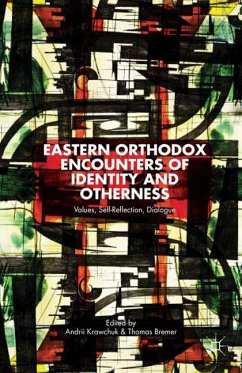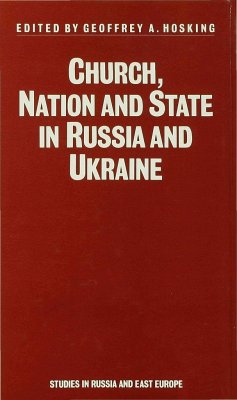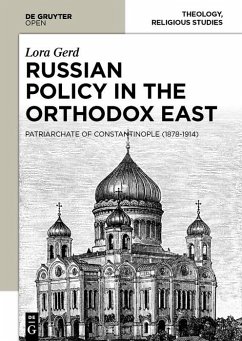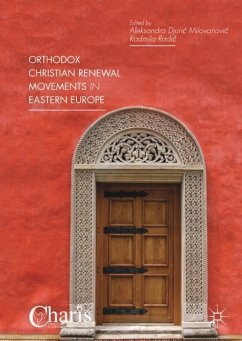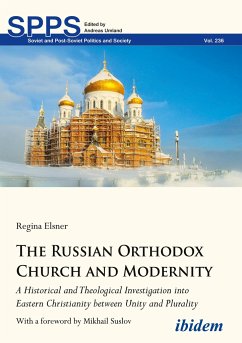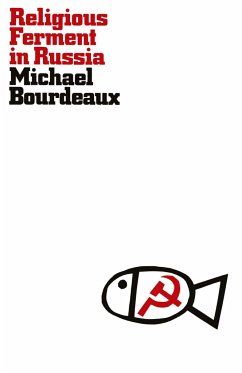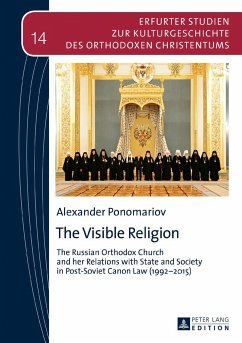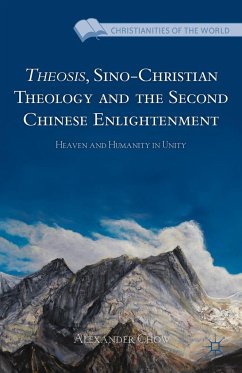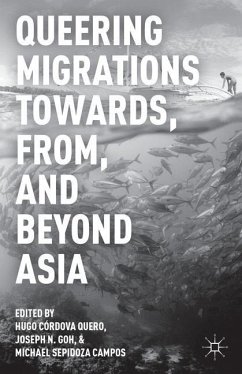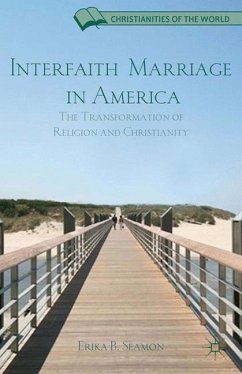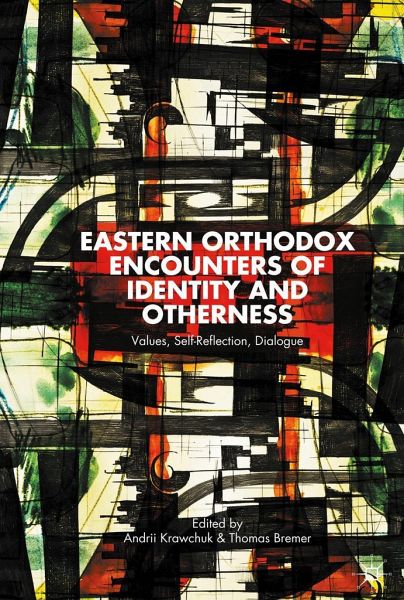
Gebundenes Buch
Eastern Orthodox Encounters of Identity and Otherness
Values, Self-Reflection, Dialogue
Herausgegeben: Krawchuk, A.; Bremer, Thomas
Versandkostenfrei!
Versandfertig in 6-10 Tagen

PAYBACK Punkte
38 °P sammeln!





From diverse international and multi-disciplinary perspectives, the contributors to this volume analyze the experiences, challenges and responses of Orthodox Churches to the foundational transformations associated with the dissolution of the USSR.
Jennifer Wasmuth, Humboldt University, Germany Alfons Brüning, St. Radboud University Nijmegen, the Netherlands Daniela Kalkandjieva, Sofia University Anna Briskina-Müller, Halle-Wittenberg University, Germany Thomas Bremer, University of Münster, Germany Dagmar Heller, Ecumenical Institute, Switzerland Ciprian Ghisa, Faculty of Greek-Catholic Theology Babes-Bolyai University, Romania Natalia Kochan, National Academy of Sciences of Ukraine Vasilios N. Makrides, University of Erfurt, Germany Julia Anna Lis, Ecumenical Institute of the Theological Faculty, Germany Regina Elsner, Ecumenical Institute in Muenster Tina Olteanu the FernUniversität in Hagen, Germany Dorothée de Nève, Institute for Political Science at FernUniversität, Germany Mikhail Zherebyatyev, Voronezh State University, Russian Federation Olga Kazmina, Moscow State University, Russian Federation Matthew Baker, Fordham University, USA Christoph Mühl, the University of Münster, Germany
Produktdetails
- Verlag: Palgrave Macmillan / Palgrave Macmillan US / Springer Palgrave Macmillan
- Artikelnr. des Verlages: 978-1-137-38284-9
- 2014
- Seitenzahl: 367
- Erscheinungstermin: 16. Januar 2014
- Englisch
- Abmessung: 236mm x 160mm x 25mm
- Gewicht: 677g
- ISBN-13: 9781137382849
- ISBN-10: 1137382848
- Artikelnr.: 39599455
Herstellerkennzeichnung
Libri GmbH
Europaallee 1
36244 Bad Hersfeld
gpsr@libri.de
"The collection ... provides important new insights into the trajectories of Orthodox thought, institutional structure, and ecumenical activities in the twenty-first century. ... the collection presents a balance of breadth and depth that will appeal to specialists on the region as well as scholars of religion. The text can serve as a valuable survey for upper-level undergraduate seminars and graduate courses on Russia and Eastern Europe, comparative religion, and church - state relations rooted in political, sociological and legal frameworks." (Steven G. Jug, Journal of Church and State, Vol. 58 (1), 2016)
"Anyone wishing to understand the thinking and behavior of Orthodox Churches in the late twentieth and early twenty-first
"Anyone wishing to understand the thinking and behavior of Orthodox Churches in the late twentieth and early twenty-first
Mehr anzeigen
century need look no further. This volume, ably edited by Andrii Krawchuk and Thomas Bremer, offers a comprehensivesurvey of the Eastern Orthodox world, taking into view, among other things, Orthodox appraisals of Western values, encounters with Catholic and Protestant Churches, and the emergence of a new religious consciousness in Russia. This volume is a most welcome addition to the literature on religion and society." - Sabrina P. Ramet (NTNU), author of Nihil Obstat: Religion, Politics, and Social Change in East-Central Europe and Russia
"The twenty papers in this compendium trace the metamorphoses in Orthodox self-identity and relationship with others, particularly the West. These are uniformly perceptive, diverse, interdisciplinary and well informed research papers expertly edited by two of the foremost scholars of religion of central and eastern Europe, Andrii Krawchuk and Thomas Bremer. Those wishing to understand the post-communist transition of Orthodoxy will want to read this book." - Paul Mojzes, Editor, 'Occasional Papers on Religion in Eastern Europe'
"With the collapse of the Soviet bloc in 1989 and the dissolution of the USSR in 1991, Orthodox churches in Central and Eastern Europe faced new opportunities and daunting challenges. Thrust from isolation into a global environment, these churches have had to reflect on their understanding of themselves and others while dealing with democracy, pluralism, and post-modernity. This book presents careful studies offering keen insights and sage observations on what has transpired in Orthodoxy in the region in the past generation." - James R. Payton, Jr., Former President, CAREE (Christians Associated for Relationships with Eastern Europe), Professor of History, Redeemer University College, Ontario, CAN
"The twenty papers in this compendium trace the metamorphoses in Orthodox self-identity and relationship with others, particularly the West. These are uniformly perceptive, diverse, interdisciplinary and well informed research papers expertly edited by two of the foremost scholars of religion of central and eastern Europe, Andrii Krawchuk and Thomas Bremer. Those wishing to understand the post-communist transition of Orthodoxy will want to read this book." - Paul Mojzes, Editor, 'Occasional Papers on Religion in Eastern Europe'
"With the collapse of the Soviet bloc in 1989 and the dissolution of the USSR in 1991, Orthodox churches in Central and Eastern Europe faced new opportunities and daunting challenges. Thrust from isolation into a global environment, these churches have had to reflect on their understanding of themselves and others while dealing with democracy, pluralism, and post-modernity. This book presents careful studies offering keen insights and sage observations on what has transpired in Orthodoxy in the region in the past generation." - James R. Payton, Jr., Former President, CAREE (Christians Associated for Relationships with Eastern Europe), Professor of History, Redeemer University College, Ontario, CAN
Schließen
Für dieses Produkt wurde noch keine Bewertung abgegeben. Wir würden uns sehr freuen, wenn du die erste Bewertung schreibst!
Eine Bewertung schreiben
Eine Bewertung schreiben
Andere Kunden interessierten sich für




